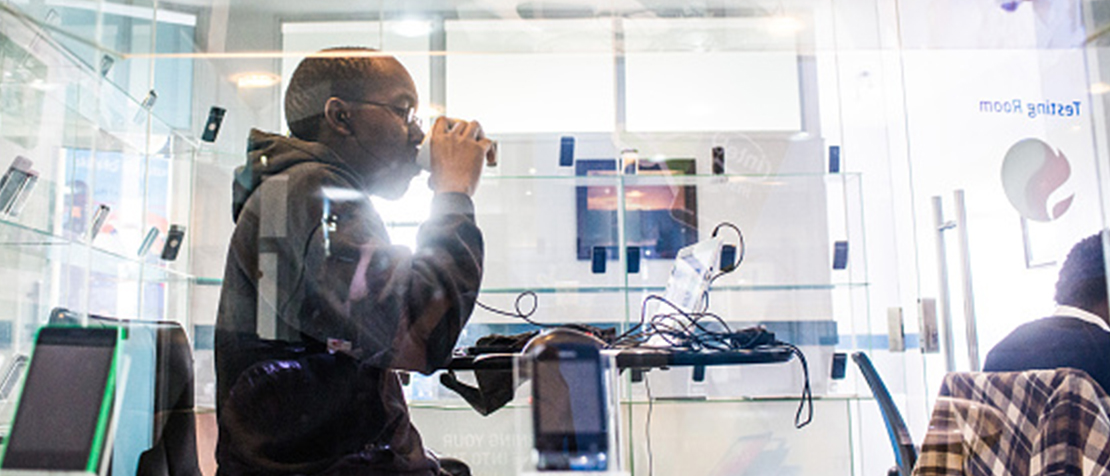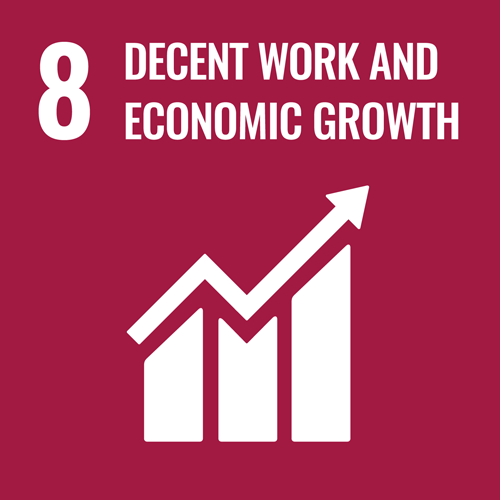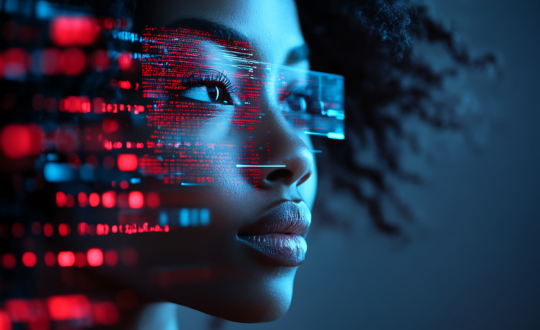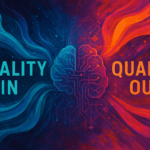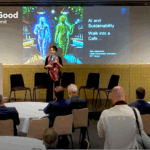Africa is on the rise.
Mobile and Internet penetration continue to rise, according to the latest ITU data.
The continent’s entrepreneurs are taking advantage of this growth in connectivity, leading to a rapid growth of tech hubs across the continent in recent years, fueling fresh innovation.
But as the world moves deeper into the Fourth Industrial Revolution, what is next for Africa, especially regarding Artificial Intelligence (AI)?
“AI happens in Africa!” said Alex Tsado, Co-Founder and Board Chair at Alliance4ai, during the recent AI-driving digital divide and the future of African economies AI for Good webinar. The session explored the challenges and opportunities of implementing AI strategies across the continent – and their impact will be on the future of AI in Africa.
“We are ready for the next wave,” said Tsado. But he highlighted that in order for this next wave to fully develop, Africa needs to set up an enabling environment.
“We don’t have a shortage of talent; we have a shortage of decision makers who will allow us to enter that Fourth Industrial Revolution so that it doesn’t become a buzzword.” said John Kamara, Director of the Machine Intelligence Institute Of Africa (MIIA), who moderated the session.
But how do you achieve this?
First, countries across Africa need to take stock, says Toyosi Akerele-Ogunsiji, Data Science and Artificial Intelligence Leader and Social Entrepreneur and Policy Advisor in EdTech & Human Capital Development. “What are the technology priorities as individual nations and as a continent?” he asked.
“There is no reason why we can’t have AI companies from Africa building AI solutions that can sell in America. There’s no reason why we can’t do the same in Europe and anywhere else.” — John Kamara, Director of the Machine Intelligence Institute Of Africa (MIIA).
“Policymakers [need] to make sure that we develop AI policy in different countries in Africa,” said Stella Tembisa Ndabeni-Abrahams, Minister of Communications and Digital Technologies in the Republic Of South Africa.
Investment needed
Creating a new digital African economy based on next-generation technologies such as AI requires countries to invest in skills, infrastructure such as data centres and cloud storage, as well as devices, she said.
But it is not just in the hardware; investment needs to happen across all areas, and especially in areas like education.
“The future of Africa is right where its children are – and everything else, like AI and ourselves, can only survive by investing well in [them],” said Mmantsetsa Marope, Director, UNESCO-IBE.
AI and other emerging technologies need to be mainstreamed into the education curriculum, she argued. This can help customize and sustain learning, plug the growing teaching gap across the continent, and provide a way for people to upskill for the evolving digital future.
Public-private collaboration is key
Also, cooperation and collaboration among government, key stakeholders and startups is key, too; in fact, it is what helped Silicon Valley to flourish, highlighted Bryan Talebi, CEO and Co-Founder of Ahura AI.
So despite the challenges, the panellists were very optimistic about Africa’s AI future.
“I think that while there’s still a lot of challenges for startups in Africa … in terms of raising capital and market opportunities. At the same time, there’s a space for a startup to succeed,” said Celina Lee, Co-Founder and CEO at Zindi Africa.
“There is no reason why we can’t have AI companies from Africa building AI solutions that can sell in America,” said Kamara. “There’s no reason why we can’t do the same in Europe and anywhere else.”
Photo: Waldo Swiegers/Bloomberg via Getty Images


